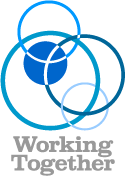Library Culture
Answering the question of how library culture contributes to social exclusion can be a disconcerting and painful consideration for a profession that has long viewed itself as open and welcoming of everyone in our communities. Regardless of how painful this discussion can be, the truth is that, while we employ many staff who are approachable and concerned as individuals, as institutions, we create policies, processes, and attitudes that contribute to the exclusion of the people who need our services the most.
Certainly, we can all speak to the homeless people who come in to use our facilities or the working poor who approach us about accessing our job search resources or to ask for help creating their resume, the new Canadians who utilise our services, and the adult learners who access our literacy services. But these are the exceptions.
The reality is that to the majority of socially-excluded people, we are a club and they do not feel welcome. Our atmosphere is oppressive, our rules and codes are alienating, and, often, we ourselves are unapproachable and/or intimidating. We require identification and proof of address for membership; we charge fines for overdue materials; we have policies about smelly patrons and behaviour that we as staff find challenging to manage; we implement policies and architecture to “protect” staff from patrons; and we use complex jargon to discuss our services. Many socially-excluded people do not feel welcome and the reality is that they are not welcome. Most of our planning processes and many of our policies and practices make this very clear to them.
This is a systemic issue and the only way to re-orient ourselves is to change the culture of our profession and our institutions. Changing the culture of public libraries must happen in two key places: in the institution and in our library education institutes.
As institutions, we must stop thinking of ourselves as the experts on what our communities’ public library needs are and view our communities’ as the experts and ourselves as their facilitators. We must treat all community members as our equal partners - regardless of their dress, their age, their language ability, their reading ability, or - even - how they smell. We must start emphasising the process of community-wide inclusion in service planning - this means being critical about how we engage the community, and being aware of who we’re missing. We need to stop planning services to reach “hard-to-reach” groups that sound like good ideas and make sense to us as staff and start planning services that reflect a need expressed by these communities - and include socially-excluded individuals in the service development process so that the service is one that they had a hand in creating.
In short, we need to ensure that we develop relationships with the those people who are excluded from community life so that our services reflect their expressed needs and not our or other service providers’ interpretation of their needs. Perhaps most importantly, we need to do this with them and not for them. We also need to start protecting each and every community members human right to access relevant information and the right to participate in the life of their community. We need these rights and the needs of the community to drive library policy - not the needs of the institution or bureaucracy.
As library educators, we need to make it clear to incoming MLS candidates that public librarianship isn’t only about knowing the difference between a directory and an index, planning a storytime, selecting books from a catalogue, searching the web, doing an outreach program, or trialing a database. We need to stress that public librarianship does not mean sitting in our four walls, the authority in our space - or even being out in the community, spreading the good news about library services. The heart of public librarianship is our community and we should be out there - as learners in their space, collaborating with them to develop library services. Anyone wanting to work in public libraries must be prepared to transfer any perceived authority our profession may have to the community and must be prepared to work as a partner rather than the decision maker.
Ultimately, public librarianship is about creating a library service that reflects the whole community. To do this, we must be flexible, open-minded, humble, and always aware that we are not the experts when it comes to community needs, nor should we aspire to be.


